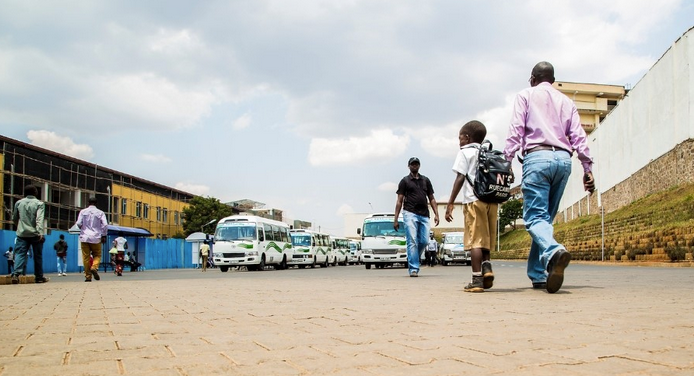Digital maturity of the local authority
What does the city mean by “smart city”?
For Kigali, a smart city is one initiated by the government that demonstrates one-for-all solutions. This means providing services that are citizen-centred and built on public need, for everyday life. Kigali’s ambition is to use digital technology and tools for the benefit of everyone.
“For Kigali, a Smart City means zero movement, zero paper for our citizens to access our services.“
Pudence Rubingisa, Mayor of Kigali
What relevant projects have been done to date?
Much of Kigali’s work to date has followed Rwanda’s national plans, which follow the overarching framework of Vision 2050. The current Smart City Master Plan provides a framework to guide Rwandan cities and towns in their efforts to harness ICTs in order to provide a higher quality of life to their citizens, businesses, and visitors. The plan is online and accessible to everyone, and has just been given an extension until October 2024. The major challenge for the plan is seen as implementation: specifically, having the means, capacity and knowledge to implement each initiative.
One of the largest digital infrastructure projects in Kigali is the establishment of a Low Power Wide Area Network (LPWAN), conducted by mobile satellite firm Inmarsat and Actility, as part of the Smart Kigali Initiative. The newly created network allows for IoT functionality across the city.
In recent years, there have been a number of other digital initiatives underway in Kigali, across a wide range of sectors. They include:
e-Government Services
IREMBO (irembo.gov.rw) is a national government platform that brings together 336 government services. It was launched in 2013, and includes e-policing services, as well as a comprehensive e-payment and certification system that has online billing and payment for utilities, as well as local authority payments and taxes.
The One Stop Centre Service for construction also brings together street addressing for 20 out of Kigali’s 35 sectors. Using the service, property developers can apply and pay for construction permits in a much quicker way than conventional routes.
The digital land title initiative
Starting in 2008, the land registry system in Rwanda was made into a nationwide digital land registry system using open data. The digital land title initiative also assigns each plot of land a unique QR Code which can be used to display information about the piece of land, its owner, and location.
Transport
Tap and Go
Rwandan company Tap’n’Go have created rechargeable cashless payment cards to be used in all public bus transport services, as well as for some entertainment providers. The system allows for quicker boarding, as well as the real time monitoring of data related to public trans- port in the city. All public buses have also been fitted with free WIFI connectivity. There are plans to introduce the Tap’n’Go service in taxis and within shopping malls.
Health
The Rwanda Health Management Information System (HMIS) stores information on the Rwandan healthcare system, as well as using aggregated data on disease to target healthcare improvements. Community workers update data at the village level on a daily basis.
Citizen participation
The #ConnectRwanda Challenge gathers private dona- tions of mobile handsets to Rwandans who can’t afford them. 37,000 handsets have been pledged so far as part of the scheme.
Citizen participation is also being achieved by sending SMS surveys to citizens who don’t own smartphones. Two hundred citizens receive text surveys at a time, and are given credit in return for their answers.
What are the plans for the future?
For the coming years, major initiatives for Kigali include Kigali Innovation City, which will be an ICT park designed to develop a technological cluster within the City, and a Citizen portal that allows two-way communication between the local authority and citizens.
How would you rate your capacity to conduct a digitisation project? 4/ 5
Reasons given:
• The City of Kigali is one of the strongest ICT- driven cities in Africa
• ICT has become part of people’s everyday life
• Introduction of the Smart Kigali Initiative
Data gathered from a questionnaire shared with all cities in Phase 1.



